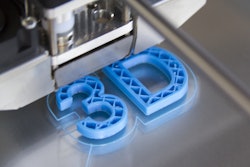
New Drishti survey results reveal adaptability is a priority, but technology investments are more likely to go toward improving efficiency. In fact, 73% of the 400 senior manufacturing executives surveyed agreed with the statement, “The more manual you are, the more adaptable you are.”
Despite the popular recognition of how important human workers are to resilient manufacturing, most respondents (62%) noted that new technology investments were targeting increasing efficiency in the form of more automation and improving physical factory infrastructure.
“There’s a misperception in manufacturing, including in a number of lean manufacturing shops, that the performance of people has reached its peak,” says Dr. Prasad Akella, founder and chairman, Drishti. “So, while manufacturers know that people bring a lot of strengths to the table in terms of flexibility, cognition and problem-solving skills, they also assume they can’t be any more productive or mistake-proof. That’s simply not the case.”
From BusinessWire:
- Productivity concerns (56%) and quality issues (54%) were the top internal challenges, followed closely by training and onboarding new line associates (48%).
- Manufacturers see a number of external threats on the horizon. Supplier price increases (45%) and supply chain disruptions (42%) loom largest in manufacturers’ minds across industries and regions. The lingering worker shortages are also perplexing manufacturers, who ranked “finding enough line associates to staff my shifts” the No. 1 concern (19%).
- Other worker-related concerns included knowing what’s happening on the floor when “I can’t be there in person“ (16%), keeping employees healthy (16%) and keeping non-essential personnel away from the line (15%).
“While many of these challenges have been present for years, today there are more variables than ever to consider when producing goods,” says Akella. “A post-Coronavirus manufacturing industry will look vastly different than it did just two years ago. Being able to quickly train line associates and empower people to continuously improve assembly processes will impact how quickly manufacturers can pivot and optimize for the changing business needs.”
















